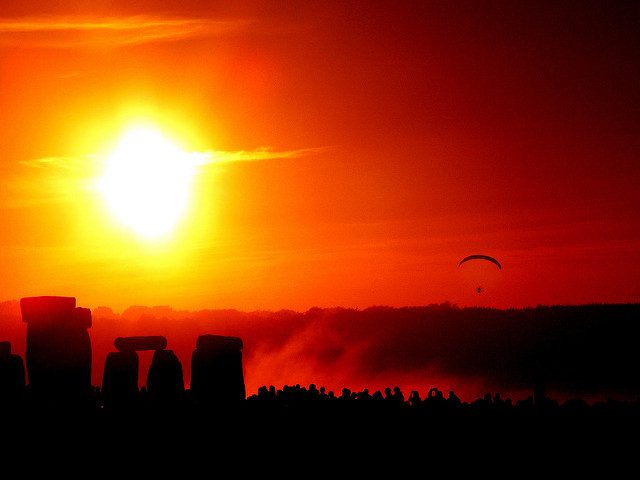
Years ago, a Wiccan leader by the name of Jason Pitzl-Waters spoke in my world religions class. One of the things he said that stood out to me was the level of consternation many American Christians face when witnessing the rise of modern Paganism. They thought Christianity had triumphed over Paganism, and that it was extinct. To their chagrin, it has risen from the ash heap.
I raised this topic with another Pagan leader, Annika Mongan, who spoke in my world religions class today. Annika comes from an Evangelical background. In fact, she is a graduate of the university where I teach and attended a well-known Evangelical church in Portland. We have since met and become friends. The last time we crossed paths in person was at the Parliament of the World’s Religions in Salt Lake City, Utah back in 2015.
I have addressed the subject of modern or contemporary Paganism in various contexts, including here at my blog, as well as in my book, Connecting Christ: How to Discuss Jesus in a World of Diverse Paths (Nashville: Thomas Nelson, 2012). Pagan leader Gus DiZerega provided the response to the chapter on contemporary Paganism. In what follows, I will not engage key differences and possible similarities between Christianity and Paganism old and new (For a discussion on modern Paganism, refer here: Ronald Hutton, The Triumph of the Moon: A History of Modern Pagan Witchcraft (Oxford and New York: Oxford University Press, 1999). Rather, I wish to engage the theme of Christian privilege, and how we should navigate redemptively as we cross paths with our Pagan neighbors. Crossing paths with Pagans should never entail viewing them through the crosshairs of Christian triumphalism. Here I am reminded of what a Jewish rabbi of a Hassidic tradition said to my class the other day. Evangelicals need to light a candle in engaging the diverse religious and cultural other in America today rather than hit them with a broom (whether ours or theirs). So, what might lighting a candle entail when engaging Pagans today?
According to Annika, it is important for Christians to listen to Pagans. She stated in class that a lot of Pagans have not experienced Christians listening to them. It would be very healing if Christians would listen to learn rather than stereotype and categorize modern Pagans falsely. I would add that we don’t need to sacrifice our biblical convictions as Evangelicals to come to terms with the fact that Pagans don’t sacrifice or eat children. We don’t need to agree with Pagans to listen to them, and we should not listen to them in a bait-and-switch manner so that—and only that—they will listen to us.
There is concern for many Pagans that with the rising tide (once again) of Christian triumphalism in America today there will be a new Satanic Panic wave, where Christians confuse Paganism with Satanism. All too often, Christian triumphalism rises when Christians in America feel that we are a persecuted minority. In actual fact, we are still the religious—if not moral—majority. What we take for persecution is often a degree of loss of Christian privilege. However, even if some of the privilege has dissipated, Christian privilege is still very much present. So, in addition to listening, Annika would encourage us as Christians to come to terms with Christian forms of privilege.
As Annika indicated, many Pagans don’t believe there are Christians who understand Christian privilege and that it is alive and well in America today. It would be easier in many circles to get a job if the boss knew you were a Christian, though not a Pagan, or to wear a cross than a pentagram at work. It would be far more readily acceptable to offer a Christian prayer in a public gathering than a pagan invocation. Pagans get Christian holidays off, but not Pagan ones, such as today—the Summer Solstice.
So, now that Pagans are back, what are we American and Western Christians going to do? Listen to them tell their story and discuss with them Christian privilege. The benefits of doing so will include the possibility of gaining new friends and being Christian witnesses who light candles of hope, truth and love, as the Rabbi said, rather than bonfires of hate to burn others. And just maybe, we’ll get a few more days off from work, such as the Summer Solstice today.















